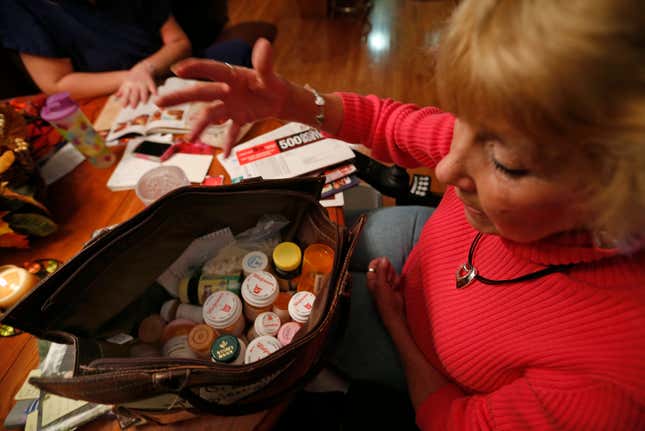
More Americans than ever before had health insurance coverage in 2022, thanks to Medicaid’s continuous enrollment, a feature of the covid emergency. And yet at the same time, 28% of people in the US chose to skip medical care due to costs—the highest percentage since Obamacare, or Affordable Care Act, became available in 2014.
According to the report on economic wellbeing in US households for 2022, published in May by the Federal Reserve (pdf), nearly a third of American adults were worried about healthcare costs to the point of forgoing treatment. This represents a 4% increase since 2021, when 24% said they skipped care. Only a year prior, in 2020, the percentage reached a historical low, 23%.
The data is in line with other findings in the report, that captures a country preoccupied and challenged by personal financial challenges.
Financial stress weighs on healthcare choices
Though 91% American adults had insurance in 2022, many still couldn’t afford out-of-pocket expenses, and 26% of them skipped care. For uninsured patients, the percentage was higher, at 42%.
People decided to forgo all types of medical care. Dental services were the most common, with 21% of American adults saying they had decided to pass on care due to costs. Next on the list, 16% of responders skipped doctors’ appointments, and 10% follow-up visits, mental health treatment, and prescription drugs.
This is in line with the overall financial wellbeing of American households, which has declined significantly in the past few years. In 2016, 53% of Americans said they didn’t face financial challenges. In 2022, only 28% said the same.
According to the report, only 73% of adult Americans said they were doing “at least okay” financially in 2022, down from 78% in 2021. The drop was significant especially among parents living with minor children: Only 69% of such households said they were at least financially okay, down from 75% in 2021.
The question of forgoing care may be most closely linked with the ability to cover unexpected expenses. Only 63% of American adults would be able to cover an unexpected $400 without going into debt, down from 68% in 2021.